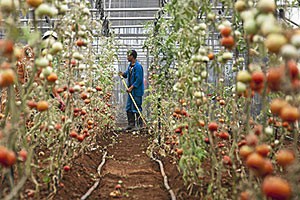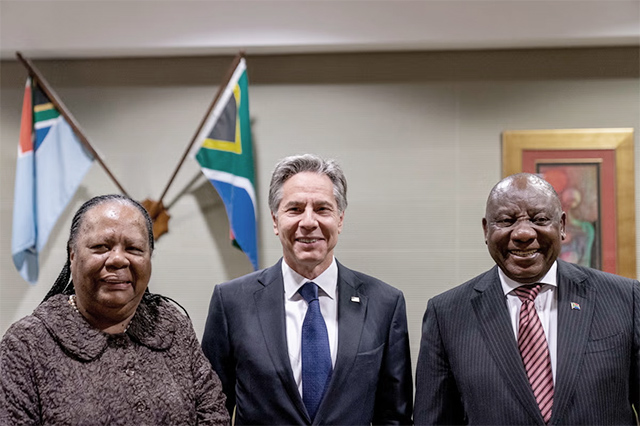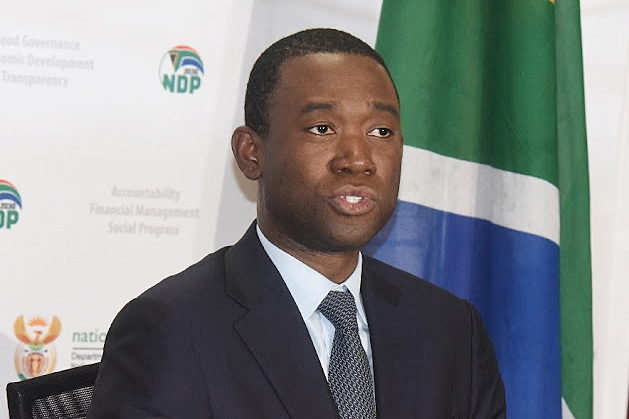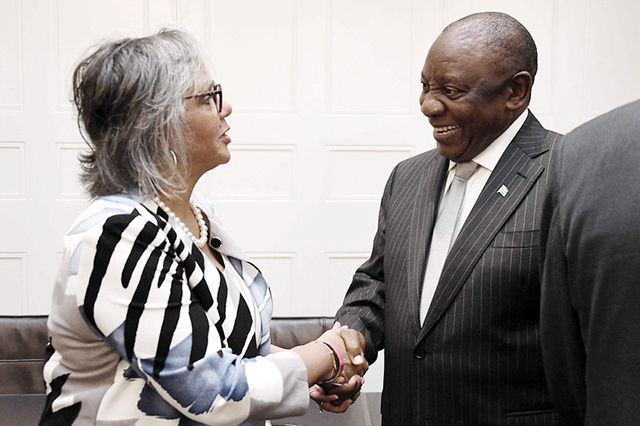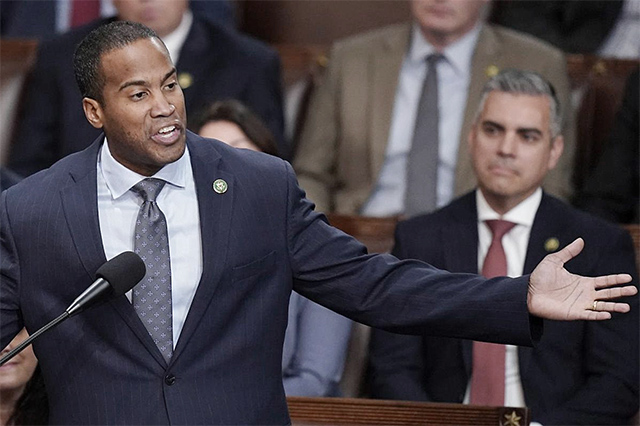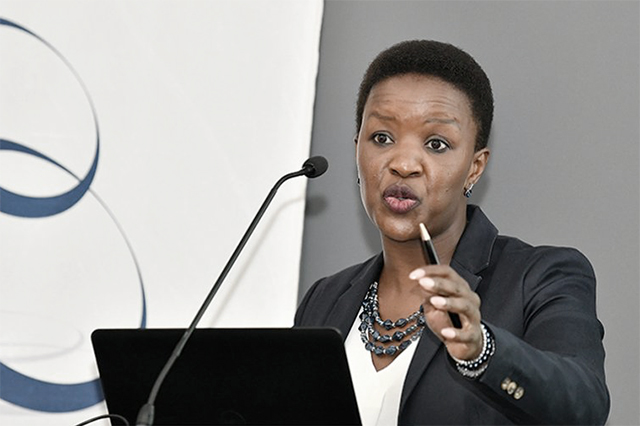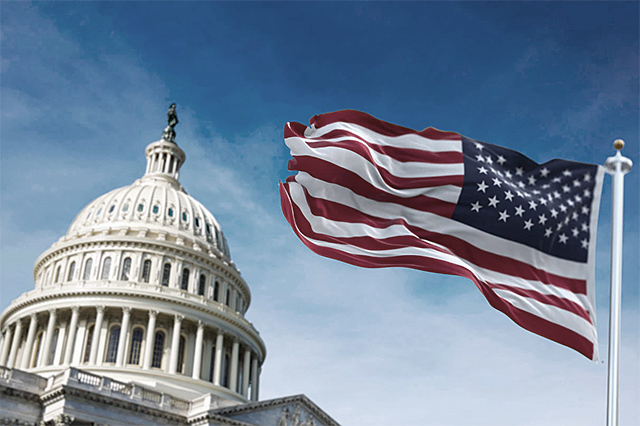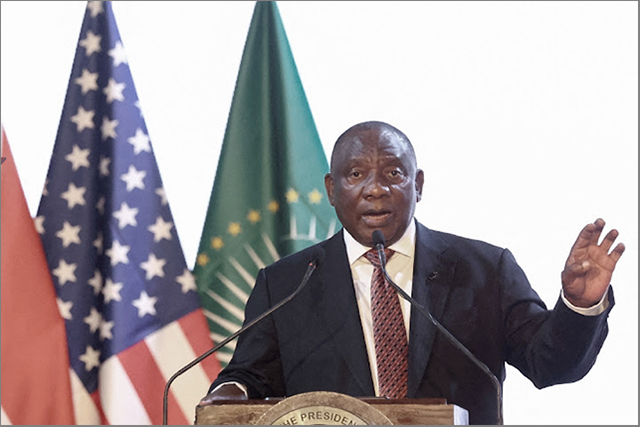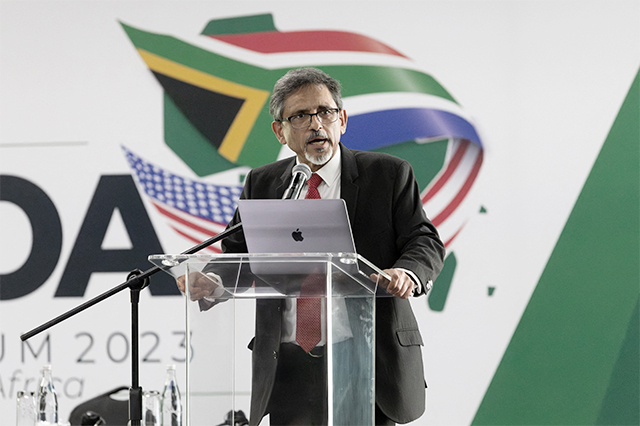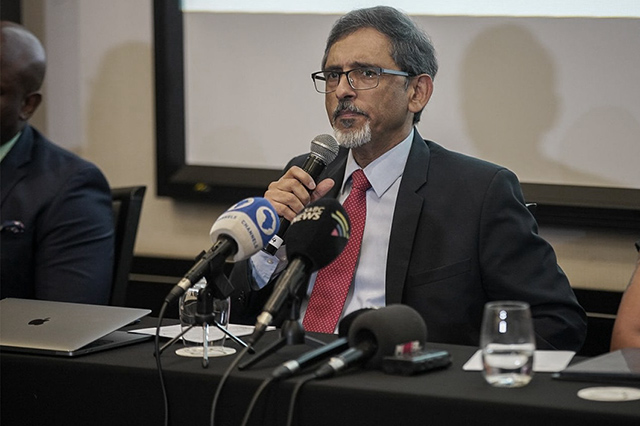AGOA: Calls for SA to graduate out of the US trade programme
As African leaders descend on Washington this week for the United States-Africa Leaders Summit, their trade ministers will, on the sidelines, be pushing hard for the extension of the African Growth and Opportunity Act (Agoa).
Despite South African government’s publicly stated expectations that US President Barack Obama will support a 15-year extension of the programme, experts believe achieving this will be no easy feat.
South Africa’s push in particular, is expected to receive a “tenuous” audience in Washington, as it faces calls for its graduation from the programme.
South Africa’s position as one of the most developed nations on the continent is the “spoken reason” for graduating it from Agoa, according to Catherine Grant Makokera, head of the economic diplomacy programme at the South African Institute of International Affairs (Saiia).
There are however other issues at play, she said, including the leverage that calls for graduation could have in getting greater reciprocity for the US, in trade relations with South Africa.
The trade programme is governed by US legislation, rather than a trade treaty, and offers a range of African countries free access to US markets without reciprocal requirements. Operating since 2000, it has been renewed a number of times but its current term ends in 2015.
Qualifying countries must however agree to move towards opening their economies and building free markets, as well as follow the rule of law and encourage democracy.
Most recently, Swaziland, under the rule of King Mswati III, has fallen foul of these conditions, which have seen it stripped of its Agoa status.
SA’s substantial gains
South Africa has gained substantially from the programme. Unlike the leading African exporters to US under Agoa, namely Nigeria and Angola, mineral resources do not dominate the trade between the US and South Africa.
Manufactured goods, particularly motor cars, account for the lion’s share of local exports to the US. According to Saiia data, in 2013 South Africa was the top non-energy exporter to the US under Agoa, with exports worth over $3.5-billion. The programme helps support an estimated 62 395 local jobs.
According to Eckart Naumann, an economist and associate at the Trade Law Centre, South Africa’s push for a seamless, long-term extension of Agoa “is probably the most tenuous in terms of having an audience in Washington”.
Among some factions within the US Congress, there are strong calls for South Africa’s graduation out of Agoa, if not now then within a defined time period, said Naumann.
These same factions, as well as the US state department and officials in the office of the US Trade Representative, believe South Africa “has not always covered itself in glory with respect to its trade relationship with the US and is perhaps considered somewhat of an uncomfortable partner and bedfellow”, said Naumann.
Problems include its “rather antagonistic attitudes” toward the West, support of certain factions in the Middle East conflict, and perceived obstruction in some UN matters and decisions, Naumann pointed out.
Its open focus on the East and Brazil, Russia, India, China, and South Africa, as well as investment-related domestic policies such as the recent private security Bill and the cancellation of a number of bilateral investment treaties in favour of a new promotion and protection of investment Bill have not gone unnoticed.
Economic setbacks against other nations
South Africa’s trade policies, such as the anti-dumping duties it has placed on poultry imports, are also likely to weigh on US lawmakers’ minds, argued Naumann.
Finally, the recent economic partnership agreement signed between the European Union and the Southern African Development Community has been watched very closely by the US, which has been emphasising greater reciprocity and market access for its own goods.
Despite these concerns it is unlikely that South Africa will be graduated from Agoa.
“The US also recognises that graduating South Afica out of Agoa comes with many pitfalls and it may be self-defeating to some extent,” said Naumann.
It would hamper regional integration, he noted, and remove a valuable provider of inputs for other Agoa beneficiary countries, harming both South Africa and other countries using South African inputs to process into export goods.
Crucially, 90% of Agoa exports consist of oil, while South Africa makes up 70% of all non-oil exports under Agoa.
“Take South Africa out, you really shoot down Agoa as anything meaningful in terms of Africa-US trade,” said Naumann. This would be a massive economic and political setback against other nations interested in fostering closes ties with the continent, particularly China and Europe, he added.
Renewal will be ‘a marathon, not a sprint’
While imminent exclusion from Agoa might not loom, Naumann believes a revised Agoa, or whatever programme replaces it, “may be more specific on plotting a path towards a more reciprocal trading relationship with South Africa”.
This might include a review of certain trade policies and protectionism and commitment to tackle the question of more reciprocal trade relations.
“Many of the concessions may however initially happen at the political level and may not immediately translate into an entirely different economic relationship,” he said.
Whatever the outcome, it is unlikely to be finalised immediately.
The fact that Agoa is a piece of US legislation, rather than a negotiated agreement, is one of the key factors likely to stymie a rapid 15-year extension, argued Makokera. “We know American legislatures like to tie their hands on matters like this and Agoa’s traditionally been renewed only for five years.”
According to a Saiia policy briefing by Eric Tamarkin, an independent researcher, and former counsel to the US House of Representatives and the US Senate, the process of renewing Agoa will be “a marathon rather than a sprint”.
The US Congress – made up of the Senate and the house – plays a more central role to the timing and content of the legislation, which is currently fraught with difficulties, according to Tamarkin. “Washington, DC is currently mired in a partisan stalemate: the Democratic Party controls the White House and the Senate, while the Republican Party controls the House. As a result, Congress often waits until the last minute to consider expiring laws and sometimes fails to act before expiration.”
Favourable business climate
In addition, the summit and the Agoa forum take place during a congressional recess when most legislators will be away. On its return, Congress heads into elections in November, meaning most members will be campaigning in their states or districts according to Tamarkin.
The influence of strong US lobby groups is another factor. Ordinarily these groups wait for legislation to appear before Congress, before they mount a campaign to support or defeat it, noted Tamarkin.
However, in the case of Agoa, a range of food and agricultural organisations have already written to congress to oppose a long-term extension to Agoa, he said.
Similarly the US Chamber of Commerce has called for Agoa eligibility to be contingent on whether African countries provide a favourable business climate for American companies and fostered greater two-way trade, according to Tamarkin.
Nevertheless, he pointed out, for now Agoa does enjoy bipartisan support in Congress. Late last year this sparked a request for an investigation by the Government Accountability Office – the investigative arm of Congress – into ways to increase Agoa’s effectiveness.
The requestors wanted recommendations on “‘enhancing economic development in sub-Saharan Africa, the ability of African businesses to utilise the full range of opportunities available under Agoa, and the efficacy of Agoa in increasing two-way US-sub-Saharan African trade’”.
Once the investigation is complete, said Tamarkin, the results will help inform the current bipartisan drafting process.


